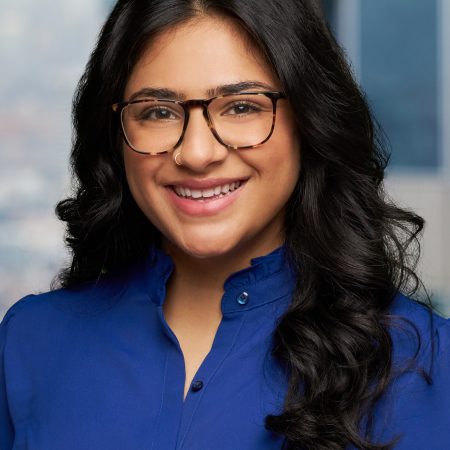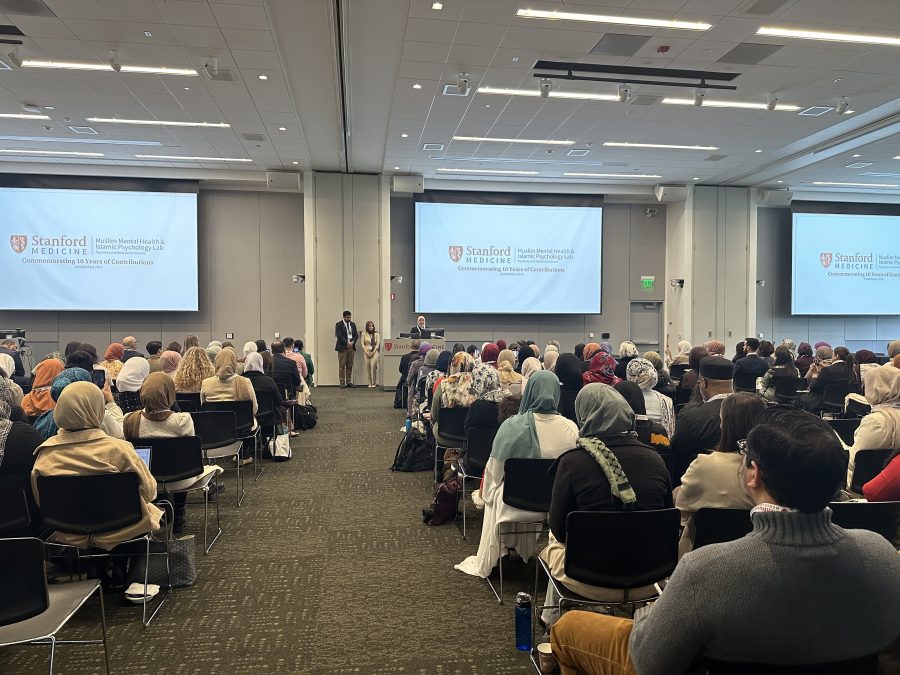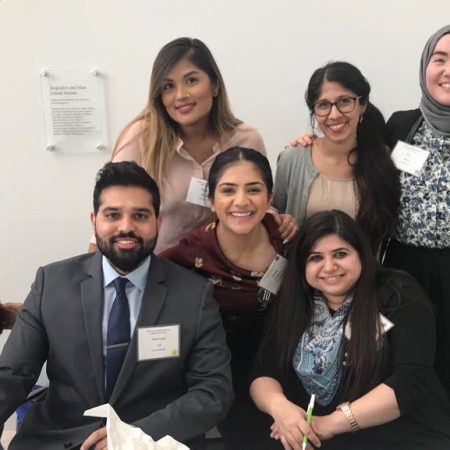Muslim Mental Health Conference attracts hundreds to discuss research on resilient communities
Over the weekend, the 17th annual Muslim Mental Health Conference took place at the Soho Banquet Center in Westland and online.
Aquila Hussain is on the board of directors and the chair of the volunteer subcommittee. She says it’s the longest-running academic conference dedicated to mental health care for Muslim communities.
“It’s very much on what is the research showing in clinical setting, what is the research showing behind the scenes, and really kind of bringing in a lot of academic merit to the study of this very diverse demographic,” she said.
Hussain said the conference helps to bring awareness to Muslim mental health needs.

“We want to get Muslim mental health practitioners, clinicians, researchers, medical professionals, to come together and talk about what is happening. We like to call it like the meeting of the minds, where we bring everyone together to kind of have these important conversations,” she shared.
Hussain said it’s also a chance for people to network.
This year the theme was resilience, resistance and collective care.
“We as a society, are resilient, and we can show resistance and very you know, it doesn’t have to be these grandiose gestures. It can be smaller gestures. And so bringing everyone together to kind of talk about that. And so this compassionate care and cultivating focusing on tradition,” she said.

Hussain said, despite a large Muslim population in Michigan, it isn’t reflected in the research.
“I think Muslims are very marginalized population, especially in Michigan. We make a large… make up a large percentage of the population, when looking at minority populations, yet we don’t really get representation equal to that,” she said.
Hussain said the conference allows diverse Muslim populations — Black, LatinX, South Asian, Arab American — to discuss mental health in the Muslim community.
“The Muslim population is large enough. It’s a diverse group of us. We range all over the world, and we’ve had such different experiences and different ways of living that it’s hard to kind of just lump us into one large group and just say like this is what happens to Muslims,” she said.
Hussain said, although she doesn’t have stats, adequately she knows there’s a growing need for Muslim mental health counselors.
“I always have a wait list, and it’s almost always of Muslim people. So personally, yeah, I think like people are reaching out exponentially, especially people teens to like, mid-30s, are a lot more open to therapy, are a lot more interested in kind of understanding their line of thinking and reflecting on these things,” she said. “I think that has a lot to do with this conference and how the systemic like destigmatization of mental health in Muslim communities.”
She said it’s important to have safe spaces to discuss world matters.
The Muslim Mental Health Conference took place April 11-12.
Trusted, accurate, up-to-date.
WDET strives to make our journalism accessible to everyone. As a public media institution, we maintain our journalistic integrity through independent support from readers like you. If you value WDET as your source of news, music and conversation, please make a gift today.
The post Muslim Mental Health Conference attracts hundreds to discuss research on resilient communities appeared first on WDET 101.9 FM.
